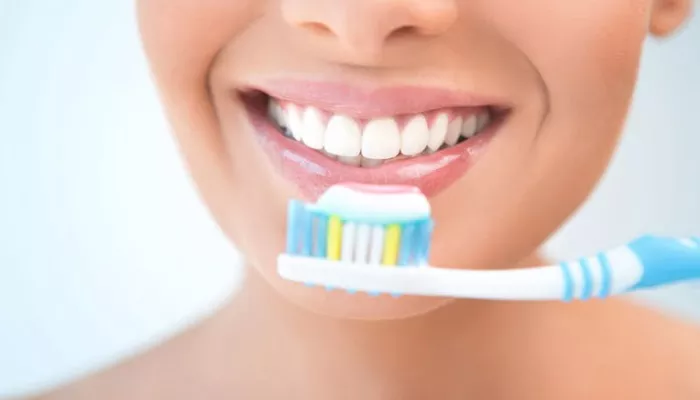Whitening toothpastes have gained popularity for their ability to brighten teeth and reduce stains. But many people wonder: do whitening toothpastes damage enamel? Enamel is the hard, protective outer layer of teeth. It protects teeth from decay, sensitivity, and damage. Understanding how whitening toothpastes work and their impact on enamel is important to maintain oral health and prevent serious dental problems like caries and root canal treatments.
What Is Tooth Enamel?
Tooth enamel is the hardest tissue in the human body. It covers the crown of each tooth and acts as a shield against mechanical forces, acids, and bacteria. Enamel contains minerals like hydroxyapatite, which provide strength and durability. However, enamel cannot regenerate once it is worn away or damaged.
How Whitening Toothpastes Work
Whitening toothpastes typically remove surface stains caused by foods, drinks, or smoking. They contain mild abrasives or chemical agents that polish the teeth and lighten discoloration. Unlike professional whitening treatments, most whitening toothpastes do not contain strong bleaching agents like hydrogen peroxide. Their effect is mainly cosmetic and gradual.
Ingredients in Whitening Toothpastes and Their Effects
The ingredients in whitening toothpastes can affect enamel differently, depending on their nature and concentration.
Abrasives
Common whitening toothpastes use abrasives such as silica, calcium carbonate, or baking soda to scrub away stains. These abrasives help clean teeth but if too harsh or used excessively, they can wear down enamel over time. This wear is called abrasion and can thin the enamel layer, leading to increased sensitivity and vulnerability.
Chemical Whitening Agents
Some whitening toothpastes contain low concentrations of mild bleaching agents like carbamide peroxide or sodium bicarbonate. These chemicals break down stain molecules but have limited ability to penetrate enamel deeply. They are generally safe for enamel when used as directed but overuse might cause mild surface erosion.
Enamel-Friendly Additives
Many whitening toothpastes include fluoride, which helps strengthen enamel by remineralizing damaged areas. Fluoride protects teeth from caries and reduces sensitivity. Some also have ingredients like calcium and phosphate to support enamel health.
Potential Risks of Whitening Toothpastes to Enamel
Although whitening toothpastes are designed to be safe, improper or prolonged use may pose risks.
Enamel Erosion and Abrasion
Excessive abrasive action can wear down enamel, making teeth more prone to sensitivity and damage. Enamel erosion may expose the underlying dentin, which is softer and can increase the risk of caries. This also makes teeth appear yellowish since dentin is naturally darker.
Increased Tooth Sensitivity
Damaged enamel can cause tooth sensitivity, especially to hot, cold, or sweet stimuli. Whitening toothpastes with abrasive ingredients or bleaching agents can worsen sensitivity if overused.
Impact on Dental Procedures Like Root Canal
Enamel damage increases the risk of cavities and deep decay, which may eventually require root canal treatment. Root canal therapy is needed when tooth decay reaches the pulp inside the tooth, causing infection or inflammation. Preventing enamel damage is therefore important to avoid severe dental problems.
Scientific Studies on Whitening Toothpastes and Enamel
Several studies have investigated how whitening toothpastes affect enamel health.
Findings on Abrasiveness
Research shows that whitening toothpastes vary in abrasiveness. Toothpastes with high abrasive content can remove more surface stains but may increase enamel wear. Low abrasive toothpastes minimize enamel loss but might have less whitening effect.
Effects on Enamel Microhardness
Some studies tested the microhardness of enamel after exposure to whitening toothpastes. Results suggest that fluoride-containing whitening toothpastes maintain or slightly improve enamel hardness, while those lacking fluoride or with high abrasives reduce microhardness, indicating enamel weakening.
Balance Between Whitening and Safety
Experts recommend choosing whitening toothpastes with moderate abrasiveness and fluoride to balance whitening benefits with enamel protection.
How to Use Whitening Toothpastes Safely
To minimize the risk of enamel damage, follow these safety tips when using whitening toothpastes:
Use as Directed
Do not brush more than twice a day or use excessive amounts of toothpaste. Overbrushing with whitening toothpaste can increase abrasion.
Choose Enamel-Safe Products
Select toothpastes approved by dental associations and containing fluoride. Avoid highly abrasive products or those with unknown ingredients.
Combine with Good Oral Hygiene
Maintain regular brushing, flossing, and dental checkups to prevent caries and gum disease. Whitening toothpaste is a supplement, not a substitute for comprehensive care.
Avoid Using Whitening Toothpaste After Dental Procedures
After treatments like root canal therapy or enamel restoration, consult your dentist before resuming whitening products to avoid sensitivity or damage.
Alternatives to Whitening Toothpastes
If you are concerned about enamel damage, consider alternative teeth whitening methods.
Professional Whitening Treatments
Dentists offer safe, controlled whitening procedures with stronger bleaching agents that minimize enamel damage. These treatments are customized based on dental health.
Natural Remedies
Some prefer natural methods like oil pulling or brushing with baking soda occasionally. These methods have mild whitening effects and low risk to enamel if done properly.
Whitening Strips and Gels
Over-the-counter whitening strips and gels are effective but should be used carefully to avoid sensitivity and enamel erosion.
Conclusion
Whitening toothpastes can cause enamel abrasion if they are too abrasive or misused. However, most commercial whitening toothpastes with fluoride and moderate abrasiveness are safe when used correctly. They help remove surface stains without significantly harming enamel. Excessive use or choosing harsh formulas can increase risks of enamel wear, tooth sensitivity, and caries, potentially leading to complex treatments like root canals.
Maintaining proper oral hygiene, selecting enamel-friendly whitening toothpastes, and consulting your dentist are essential for safe teeth whitening and long-term dental health.

